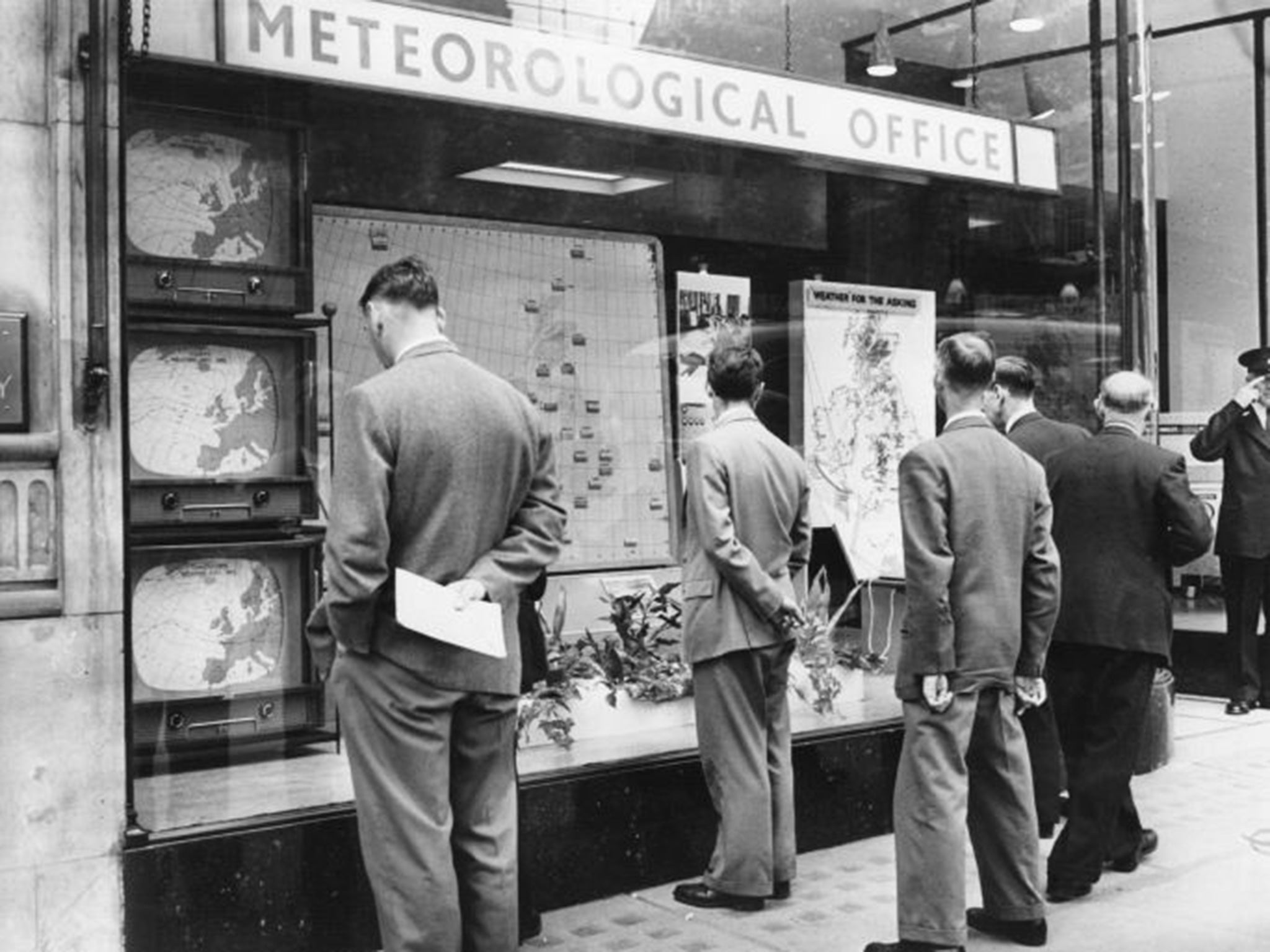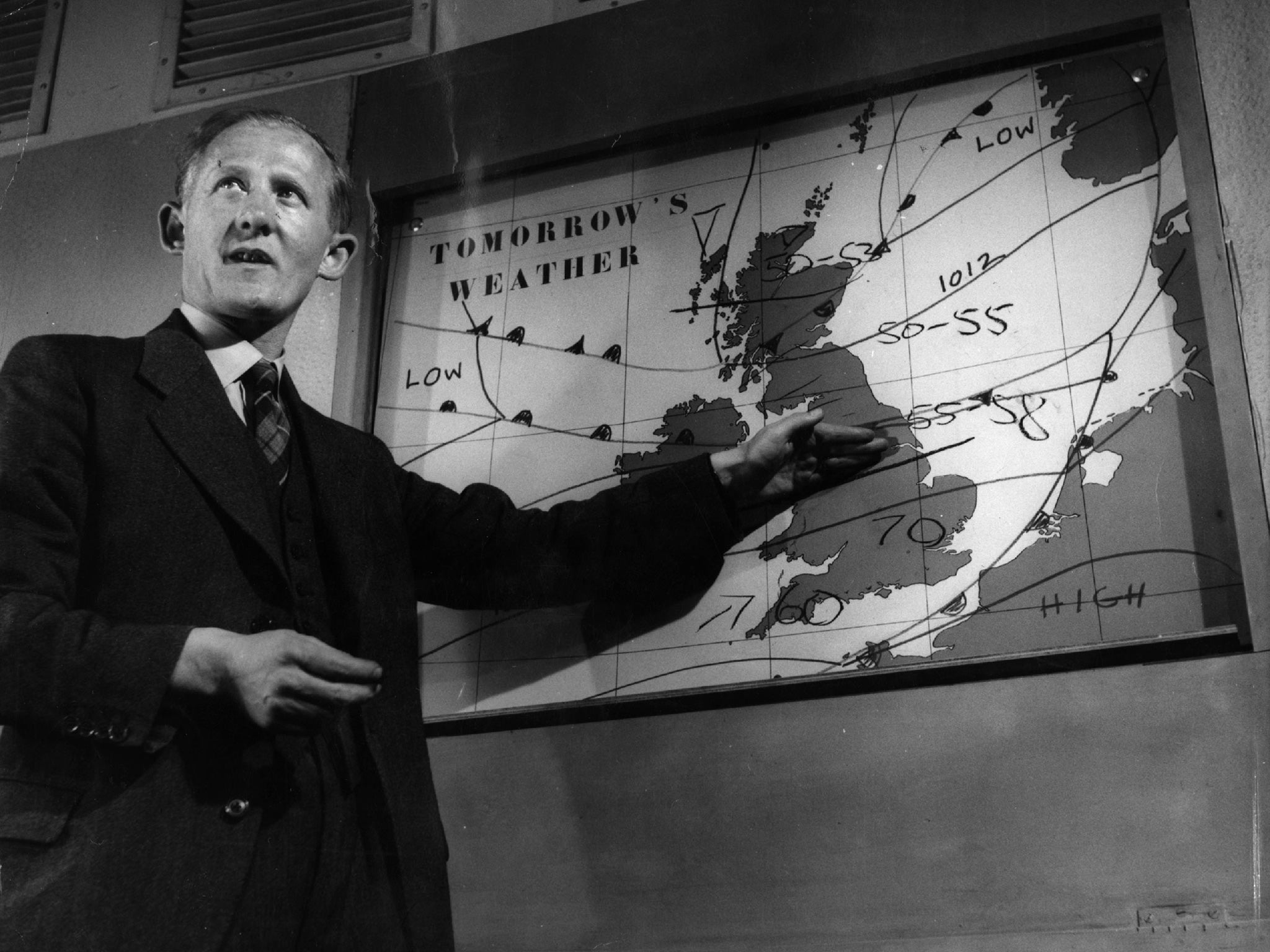Met Office loses BBC contract: Broadcaster gives no reason for ending 100-year relationship
'What’s the Point of...?' questioned the forecaster's scientific credentials

Your support helps us to tell the story
From reproductive rights to climate change to Big Tech, The Independent is on the ground when the story is developing. Whether it's investigating the financials of Elon Musk's pro-Trump PAC or producing our latest documentary, 'The A Word', which shines a light on the American women fighting for reproductive rights, we know how important it is to parse out the facts from the messaging.
At such a critical moment in US history, we need reporters on the ground. Your donation allows us to keep sending journalists to speak to both sides of the story.
The Independent is trusted by Americans across the entire political spectrum. And unlike many other quality news outlets, we choose not to lock Americans out of our reporting and analysis with paywalls. We believe quality journalism should be available to everyone, paid for by those who can afford it.
Your support makes all the difference.A controversial BBC radio programme that questioned the scientific credentials of the Met Office is unlikely to have influenced the broadcaster’s decision to end its nearly 100-year relationship with Britain’s official weather service, it has been claimed.
The BBC announced on Friday that it is no longer considering the Met Office in an open tender process for a new five-year contract to supply radio and TV weather reports to the broadcaster beginning in the autumn of 2016. The Met Office has supplied weather reports to the BBC since 1922.
The announcement came three weeks after a contentious Radio 4 programme, What’s the Point of...?, focused on the Met Office. The programme, presented by a Daily Mail columnist, questioned the accuracy of the long-term forecasts made by the Met Office in its scientific assessments of the risk posed by global warming and climate change.
Criticism has been levelled at the Met Office, particularly in recent years, over its cost‑effectiveness and its ability to always accurately predict the fickle British weather. Reports this month said staff at the Met Office had received bonuses totalling £20.8m over the past five years for correctly predicting the weather.

The fact the BBC broadcast a popular radio show which was highly critical of the organisation it had employed for 93 years raised eyebrows, especially as some reports alleged there were several factual errors in the show.
A spokeswoman for the Met Office said that there was unlikely to be any link between the ending of its BBC contract and the radio programme given that it was aired at the beginning of August, while the open tender process for the BBC weather forecasts has been ongoing for several months.
“I’d be surprised if a half-hour programme had any influence at all. We’re very disappointed but it’s just one of a number of commercial contracts we have,” she said.
The BBC said that it was legally bound to go through an open tender process to get the best service and value for money for television licence-fee payers. Several commercial weather services overseas are still vying for the contract, but the Met Office was told last week that its bid had failed, having successfully won the last open tender in 2010.
“Our graphics are already supplied by another provider and our long-standing relationship with the Met Office will continue as we intend to still broadcast their severe weather warnings,” a BBC spokesman said. No reason was given for ending the Met Office contract.
The Met Office’s Hadley Centre in Exeter carries out extensive computer modelling of climate change, which has been the target of vehement criticism by climate sceptics, some of whom featured prominently in the Radio 4 programme, which was widely criticised for its one-sided approach.
The Met Office had previously been criticised for some of its long-term forecasts, famously the “Barbeque Summer” of 2009, which turned into a wash-out. The BBC announced last week that it was considering proposals from weather services based in the Netherlands and New Zealand.
Steve Noyes, operations and customer services director of the Met Office, expressed his disappointment with the BBC’s decision in a statement: “Nobody knows Britain’s weather better and, during our long relationship with the BBC, we’ve revolutionised weather communication to make it an integral part of British daily life. This is disappointing news, but we will be working to make sure that vital Met Office advice continues to be a part of BBC output.”
Ben Bradshaw, a former Culture Secretary who is the MP for the Exeter constituency, said in a tweet that he was extremely alarmed to hear that the BBC had dropped the Met Office in favour of foreign weather-forecasting services, and called on the Government to step in.
Some of the best-known weather presenters, such as John Hammond, Alex Deakin, Helen Willetts and Louise Lear, are employed by the Met Office under secondment to the BBC. It is expected that their employment will be transferred to the new weather-service provider.
A BBC spokeswoman said: “There is absolutely no link between the programme and the situation we’re in now.”
Join our commenting forum
Join thought-provoking conversations, follow other Independent readers and see their replies
Comments